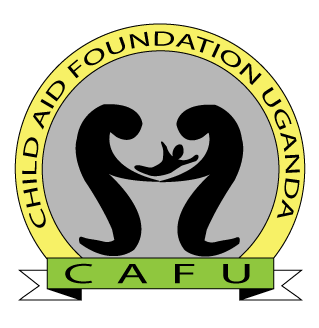Geographic Areas
CAFU focuses on the most vulnerable communities in Northern, Eastern and Western Uganda that are lagging on key poverty indicators.
Target Groups
Rights holders
In this strategic period, CAFU will work with the right holders in the following communities; Among the rights holders, beneficiary selection criteria will consider the following
categories;
- Orphaned and Vulnerable Children
- Children of school-going age
- The girl child
- The Youth (16-25 years)
- Persons with disabilities
- Women-headed households
- People living with HIV and AIDS
- Traumatized persons
Duty bearers
CAFU operates alongside the government, local, national and international NGOs, and UN agencies in all the areas of operation. These are identified as coordination partners, to ensure a balanced and efficient interaction in the support to be provided to local entities. This coordination is materialized in an active exchange of information and the pooling together of resources for joint actions. Organizations identified as primary actors for CAFU’s work include:
- Government: Relevant ministries and Focal Point Officers; Office of the Prime Minister (OPM)
- Ministry of Agriculture, Animal Industry and Fisheries (MAAIF); Ministry
of Water and Environment (MoWE); Ministry of Gender and Social Development
(MoGLSD) - Relevant District Local Governments where CAFU is implementing interventions
- International NGOs:
- UN Agencies: CSOs: Like-minded CSOs especially those involved in promoting
advocacy work. - NGO Forum
Sustainability and Exit Strategy.
CAF-U envisions a world where the interventions will continue regardless of the dwindling donor funds, and the continuity of the enjoyment of the project intervention benefits even beyond the life of the project. Specifically, the CAF-U sustainability plan will be anchored on the following domains;
Diversity of funding sources from both internal and external sources. CAF-U emphasises both humanitarian support from donors and internal support from friends and founders with the passion to alleviate the appaling OVC situation. This ensures continuity of intervention in the wake of the dwindling donor funds.
Funding sustainability.
Our funding sustainability will entail establishing a consistent financial base for both CAF-U and beneficiaries and promoting diversification. Through the diversity of funding sources, coupled with the enterprising nature of the founders, we can build the local economy and continue the provision of an integrated response to vulnerable children even in the wake of reduced donor funding.
Social Entrepreneurship.
CAFU focuses on social entrepreneurship to complement funding sources from internal and external donors. Specifically, CAF-U operates a business model to utilise business gains to realise the objectives of the organisation. Specifically, CAF-U engages in Commercial Palm oil growing, Agro-processing and Real Estate Investment with a fraction of the proceeds used as donations to better the lives of OVCs in line with the objectives of the organisation.
Partnerships and Synergy.
CAFU works closely and strengthens the capacity of the relevant stakeholders and local CBOs, already existing community structures, and will build the capacity of the community-based organisations. CAFU also conducts civic engagements with the members of the community to ensure that the community members are at the recentre of all interventions.
Strengthening the family and communities as first-line responders. CAFU strengthens the positions of the family and the community to be fast-line responders.
This ensures that the works continue even without immediate direct involvement of CAF-U staff.
